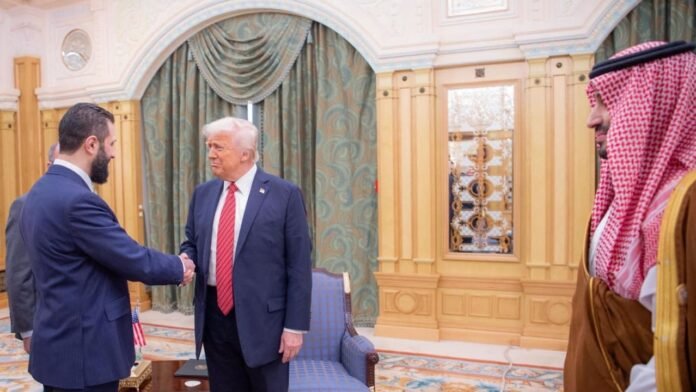On Monday afternoon, President Donald Trump made a bold move. He signed an executive order that declared sanctions lifted on Syria. The announcement marked a significant shift in decades-long U.S. policy.
The order directed the secretaries of State, Commerce, and Treasury to begin the process. They must now remove economic restrictions and waive specific export controls. The goal is clear: support Syria’s path toward peace and stability.
White House press secretary Karoline Leavitt confirmed the decision to reporters. She emphasized that this step only applies to general economic sanctions. Sanctions will remain in place against individuals involved in war crimes, terrorism, and chemical weapons.
“We want to give Syria a chance at peace,” Leavitt said. “But we are not lifting pressure on Assad or bad actors.” The administration will still hold accountable anyone linked to human rights abuses or Iranian proxy forces.
Ambassador Tom Barrack, the U.S. envoy to Syria, called the decision long overdue. He described it as a “tedious, detailed, excruciating process.” Sanctions had crippled Syria for decades, largely due to Bashar al-Assad’s violent regime.
Brad Smith from the Treasury Department echoed that sentiment. He said sanctions would remain “where appropriate,” especially against individuals threatening regional stability. “The fall of Assad signals a new beginning,” he stated. He also warned that the U.S. would stay alert. Treasury would not hesitate to act if national interests or financial systems come under threat.
Some sanctions, however, still require congressional approval. Others date back to 1979 when Syria was labeled a state sponsor of terrorism. That designation remains in place for now.
The backdrop of this policy change includes dramatic shifts inside Syria. Al-Sharaa’s militant group, Hay’at Tahrir al-Sham (HTS), ousted Assad in March. Since then, HTS has pushed to improve ties with the U.S.
Additionally, Al-Sharaa offered major concessions. He proposed building a Trump Tower in Damascus and easing tensions with Israel. He even pledged U.S. access to Syria’s rich oil and gas sectors. His campaign focused on transforming HTS into a legitimate governing body.
The U.S. sanctions once barred all business with Syrian entities. They blocked financial aid, froze bank access, and shut Syria out of global trade. But with sanctions lifted on Syria, the door opens to economic revival.
Still, not everyone is on board. Israeli officials have expressed concerns. They believe lifting sanctions weakens U.S. leverage in ongoing peace discussions. Israel and Syria remain historical adversaries. Talks are happening quietly behind the scenes. One senior U.S. official responded sharply. “We are not nation-building,” he said. “It’s up to Syria to lean toward Israel.”
In conclusion, sanctions lifted on Syria could reshape the region. Whether it leads to lasting peace remains to be seen. But the United States has made its position clear: it supports a stable, unified Syria ready for a new beginning.
For more political updates visit DC Brief.


